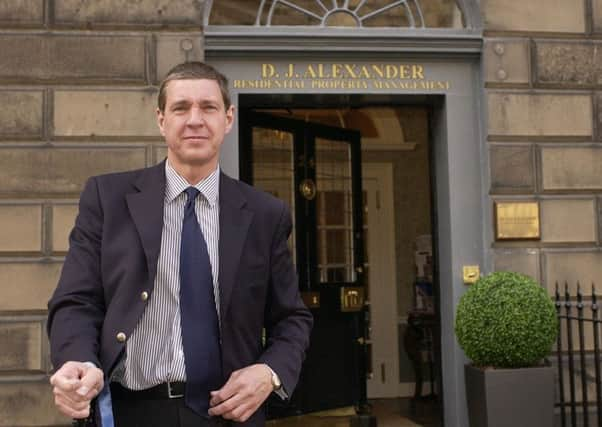U-turn predicted as stamp duty change hits high-end sales


The land and buildings transaction tax (LBTT), which replaced stamp duty in Scotland last April, has already attracted criticism from some in the industry who say it is having an impact on prices as buyers and vendors take account of the extra costs incurred by the new levy.
Under LBTT, properties bought for up to £145,000 do not attract any tax. For sales between £145,000 and £250,000, a tax rate of 2 per cent applies, with a rate of 5 per cent between £250,001 and £325,000.
Advertisement
Hide AdAdvertisement
Hide AdBetween £325,001 and £750,000, the levy is 10 per cent, with a top rate of 12 per cent applying to all transactions above £750,000.
From this April, a new supplement of 3 per cent kicks in for people buying second homes and buy-to-let landlords, echoing Budget measures south of the Border.
David Alexander, managing director of estate and rental agencies, DJ Alexander Legal and DJ Alexander Lettings, said that with sales at the top end of the residential property market having “fallen off a cliff” since LBTT was introduced last year, there would be insufficient tax income from transactions lower down the scale to make up the deficit.
“While the prospect of any change in the coming financial year may be doubtful, it is likely there will be a rethink for 2017/18 if the Scottish Government wishes to improve the money it receives from residential LBTT transactions.
“It takes more than 70 sales at £200,000 to raise the equivalent tax from just one sale at £1 million, so unless his intention is simply to ‘bash the rich’, John Swinney will have no alternative but to change direction.”
Alexander said a two-tier market was developing. “The lower end of the market is showing encouraging signs of buoyancy and prices of properties currently valued at between £200,000 and £250,000 could rise as much as 10 per cent in the next year.
“However, that will not boost the government’s tax coffers by very much because of the dearth of high-end purchases.”
Swinney has argued that the setting of LBTT creates strong opportunities for first-time buyers to enter the market.
